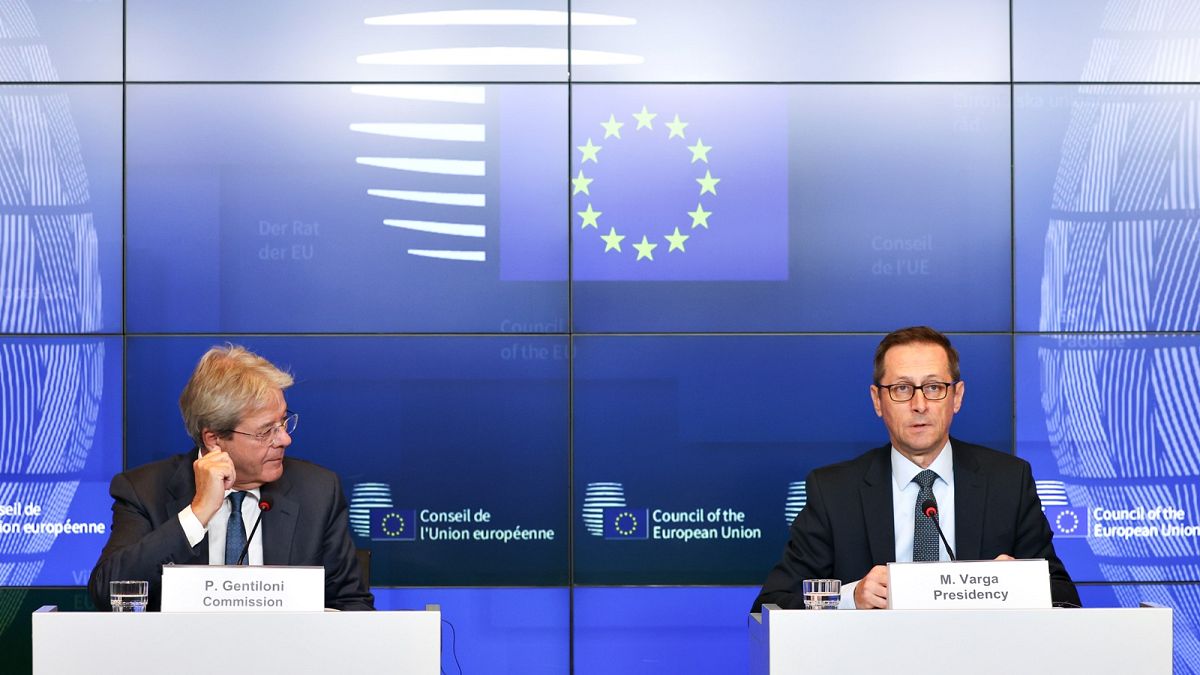The European Union is planning to raise a €35 billion loan for Ukraine through a key change in the sanctions regime that Hungary has been blocking. Hungary confirmed that it would not support the change in the EU sanctions on Russia’s immobilised assets until after the US elections next month. The G7 allies need this change as a guarantee to issue a €45 billion loan to Ukraine, using windfall profits of Russian frozen assets to gradually repay the money to Kyiv. This is in an effort to exempt allies from footing the bill. The European Commission has proposed a contribution of up to €35 billion, depending on the contributions of other Western allies. However, the decision on the key amendment of the sanctions regime will have to wait until 5 November due to Hungary’s stance, potentially delaying Washington’s decision on its contribution.
The United States has expressed concerns over the long-term stability of the plan, as EU sanctions on the frozen assets need to be renewed every six months by unanimity. This means that at any moment, one member state could prevent the renewal, unfreeze the assets, and disrupt the entire project. Hungary has a history of blocking sanctions until it secures controversial concessions that sometimes align with Kremlin’s interests. To address Washington’s concerns, Brussels has proposed extending the renewal period on the frozen assets from six to 36 months. Although member states are expected to agree on the €35 billion loan in the coming days through qualified majority, Hungary insists on waiting until after the US elections to make a decision on the key amendment to the sanctions regime.
Hungary’s finance minister, Mihály Varga, stated that the decision on prolonging the Russian sanctions should be made after the US elections, as the two presidential candidates, Kamala Harris and Donald Trump, have different approaches towards dealing with Russia’s war of aggression. Hungarian Prime Minister Viktor Orbán has openly expressed his preference for Trump’s candidacy. Varga emphasized the need to see in which direction the future US administration plans to move regarding this issue. He noted that the US presidential election and campaign have shown two different ways of solving the problem – one towards peace and the other towards continuing the war. This decision will ultimately impact the direction the bloc will take regarding its next steps.
During a ministerial meeting in Luxembourg, the European Commissioner Paolo Gentiloni mentioned that ministers had expressed “quasi-unanimous” support for amending the sanctions regime, which is seen as a pre-condition for enabling American participation in equal parts in the loan for Ukraine. Gentiloni emphasized the importance of burden-sharing among the G7 allies. While an agreement is possible during the EU ambassadors’ meeting in Brussels, Hungary’s insistence on waiting until November for the decision could delay the process. Hungary, currently holding the rotating presidency of the Council of the EU, will moderate the session and play a key role in the decision-making process. The hold-up in this key amendment could impact the overall timeline of the loan plan for Ukraine, and potential contributions from the United States.










